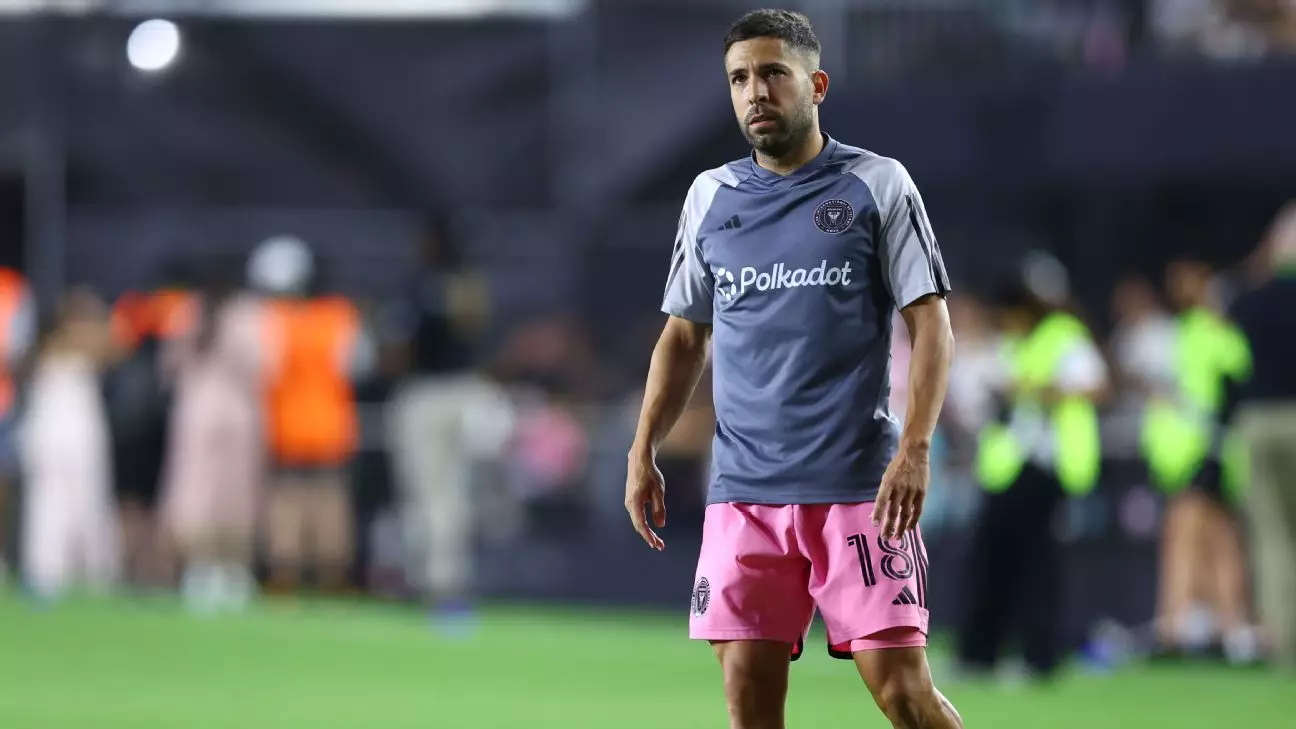The Major League Soccer (MLS) postseason has once again sparked conversations about its structure and fairness, particularly after Inter Miami’s heart-wrenching elimination at the hands of Atlanta United. The decisive game unfolded at Chase Stadium, where Miami fell 3-2 in the third match of a best-of-three playoff series; a situation that left Jordi Alba, the prominent defender for Inter Miami, voicing his discontent regarding the playoff format. This was Alba’s first experience in the MLS playoffs since joining the team, and it was clear his expectations extended far beyond mere participation.
Alba articulated his frustrations post-game, pointing to the inherent flaws he perceives in the playoff structure. “It was a good season, but what we wanted was to win this more. In my opinion, I am not the one who is going to change now. This format seems a little unfair to me,” he stated, expressing his desire for a more equitable system. His observation shines a light on a larger conversation that fans and analysts alike must grapple with: whether the playoff format truly embodies the spirit of competition in the league.
Entering the playoffs, Inter Miami had established themselves as a formidable force, having topped the Eastern Conference and secured home-field advantage by clinching the Supporters’ Shield. This achievement alone broke records for the most points in a single MLS season. Given their regular-season success, one would assume that teams with outstanding performances should have a path that reflects their higher standings. However, Alba’s comments suggest that the playoff format does not adequately reward such diligence and achievement.
In the aftermath of the loss, one fact remains: despite boasting a star-studded lineup featuring global icons like Lionel Messi, the team fell victim to a well-coordinated effort from Atlanta. Alba highlighted the discrepancy between Inter Miami’s performance metrics and the final outcome, stating, “Today I think we have been superior, we have dominated, but they attacked four times and they scored three goals.” This paradox of dominating possession but ultimately losing illustrates that even the best teams can succumb to the unpredictable nature of knockout competitions— a sentiment that is difficult for players who pour their heart into every match to accept.
The post-match sentiments didn’t end solely with an analysis of the defense and tactics but extended into a broader evaluation of what constitutes “success” within the franchise. Head coach Gerardo Martino refrained from labeling the season a triumph, asserting, “When one is eliminated here in the quarterfinals, no… If you think about the expectations we had for these playoffs, obviously we have fallen short.” Such frankness underscores a desire for sustained improvement rather than complacency with past achievements.
Miami now faces the offseason, a period in which they will not just reflect on the previous year’s highs and lows but actively work to build a stronger team for the upcoming 2025 campaign. In the world of sports, offseasons can be as critical to success as the seasons themselves. Roster evaluations, player acquisitions, and strategic realignments will drive the team’s pursuit of future accolades.
Jordi Alba’s criticisms raise critical questions regarding the MLS playoff framework. His notion that the champions of each conference should face off in a final showdown for fairness resonates with many fans and athletes who value meritocratic principles in sports. If the league aspires to enhance its competitive integrity, it may be time for decision-makers to reassess the intricate details of the playoff format.
While this discussion may be in its nascent stages, it is palpable that the stakes are high for Inter Miami as they embark on a new chapter. To move forward effectively, they will need to analyze setbacks without losing sight of the achievements that got them this far. The pressure on the franchise increases as they prepare for a pivotal offseason that could determine their trajectory in the seasons to come. As they aim to rectify past shortcomings, the dialogue surrounding fair play and enhanced competition is likely to intensify, shaping not just their future but the future of the league as a whole.

